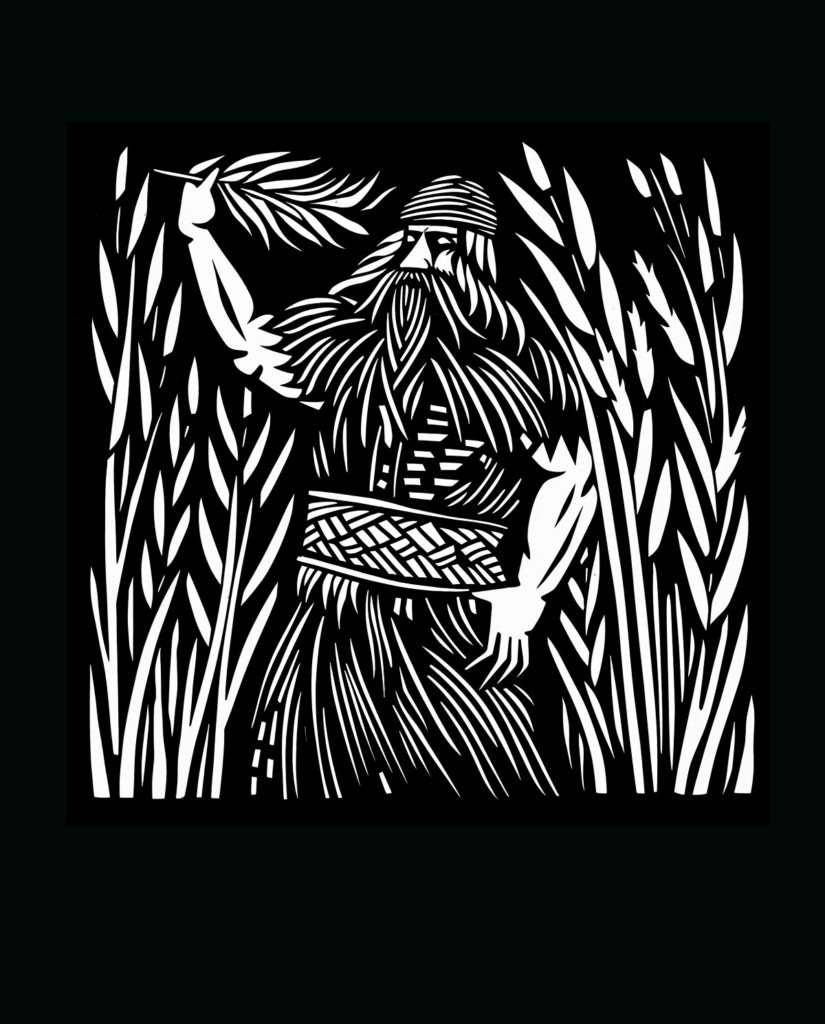
| Alternate Names: | Bēow, Bēo |
| Iconography: | Barley, Barleycorn |
| Domains: | Brewing, Harvest |
Table of Contents
Historical Attestation
Beowa, also spelled Bēow or Bēo, is a prominent figure in Anglo-Saxon pagan mythology as a spirit of barley and the god of agricultural fertility. He is also known as the Barley spirit, and is associated with the growth and harvest of barley, which was a vital crop in ancient Anglo-Saxon culture.
Beowa is often depicted as a powerful and benevolent spirit, who ensures the fertility of the land and the success of the harvest. In this role, he is closely connected to the natural cycle of the seasons and the cycles of planting and harvest. He is also associated with the abundance and prosperity of the community, as a bountiful harvest would provide food and resources for the people.
In Anglo-Saxon literature, Beowa is often mentioned in connection to the agricultural cycle. For example, in the “Laws of Æthelberht,” which is an Anglo-Saxon legal code from the 7th century1Attenborough, F. L. (1922). The laws of the earliest English kings æthelberht I to æthelstan. The University Press., there are specific laws related to the sowing and reaping of barley, which may reflect the importance of Beowa in the agricultural practices of the time.
Beowa is also closely connected to the character of John Barleycorn in English folklore. John Barleycorn is a personification of the barley plant and its transformation from seed to beer. The character is often associated with the cycle of life, death, and rebirth, as the barley plant is sown in the spring, grows during the summer, and is harvested in the fall. The barley is then transformed into beer, which is consumed and celebrated during the winter. In this sense, John Barleycorn and Beowa share similar attributes and may have been interchangeable.
The worship of Beowa may have taken place during the planting and harvest season, with rituals and offerings made to ensure a bountiful crop. In some instances, it is believed that human sacrifice was offered in order to appease the Barley spirit.
It is also believed that Beowa was a chthonic deity, meaning that he was associated with the underworld. This association may have been made due to the underground growth of barley and its connection to the cycle of death and rebirth.
Ingwine Guidance
In conclusion, Beowa is a prominent figure in Anglo-Saxon pagan mythology, as the spirit of barley and the god of agricultural fertility. He is closely connected to the natural cycle of the seasons and the cycles of planting and harvest, as well as the abundance and prosperity of the community. The character of John Barleycorn in English folklore shares similar attributes with Beowa and may have been interchangeable. Worship of Beowa likely took place during planting and harvest seasons, with rituals and offerings made to ensure a bountiful crop. The association of Beowa with the underworld further emphasizes the importance of agriculture and the cycle of life, death and rebirth in ancient Anglo-Saxon culture.

